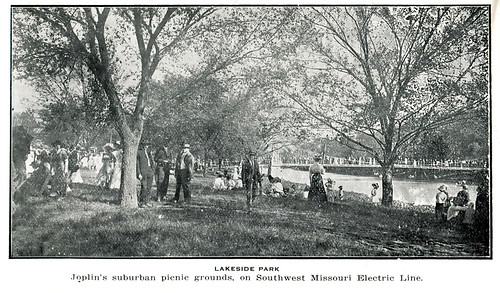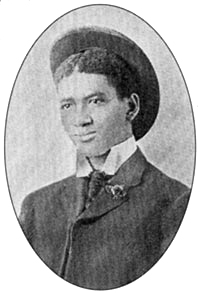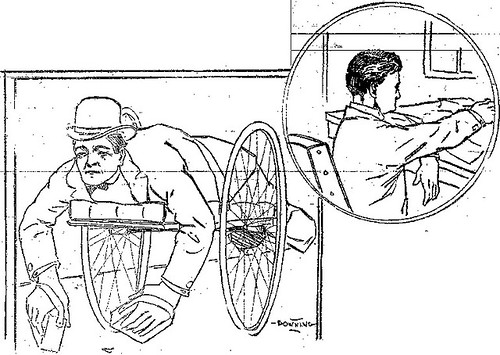African American ragtime musician James Scott, who spent his formative years in Carthage, Missouri, entertained crowds at Lakeside Park, just outside Joplin. In 1914, Scott wrote music for a song he called, “Take Me Out to Lakeside.” The words are by Ida Miller.
Take Me Out to Lakeside (1914)
First verse:
Take me to “Lake-Side” that beautiful place,
Where your life seems complete,
Orchestras playing and everyone swaying gives you such a treat,
Dancing and glancing with smiles so entrancing is all you can see
The Waltz hesitation is all the sensation,
Oh come and dance with me.
Refrain:
Take me out to Lakeside Sunday afternoon,
Where the band is playing, Flowers all in bloom,
Boys and girls together happy as a lark,
Take me out to “Lake-Side”
Beautiful Lake-side Park, park.
Second verse:
When twilight draws near and the whole world seems drear,
And you’ve no place to go,
You may sit guessing but no thought expressing The pleasures you love so,
You think of your only while you feel so lonely it all
Seems a dream
So while you are pining there comes a reminding,
A glorious thought it seems.
Refrain:
Take me out to Lakeside Sunday afternoon,
Where the band is playing, Flowers all in bloom,
Boys and girls together happy as a lark,
Take me out to “Lake-Side”
Beautiful Lake-side Park, park.
To listen to a sample of the song, visit this link at Pandora Radio.






